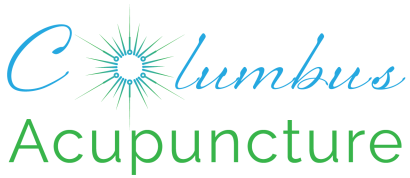
2520 California St, Ste G
Columbus, IN 47201(812) 374-4518
- Monday9am-4pmTuesday9am-5pmWednesdayclosedThursday9am-5pmFriday9am-5pmSatclosedSunclosed
-
Latest Articles:
- • Add These 10 Immune-Boosting Foods to Your Fall Diet •
- • Keep Your Skin Healthy and Glowing with these Fall Skincare Tips •
- • Beat End of Year Burnout with these Fall Self-Care Rituals •
- Sign up to receive news and updates and get my free report:“The Top 10 Reasons to Try Acupuncture”

Uncategorized
Acupuncture: Improving Children’s Immune System
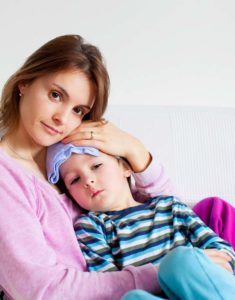 Acupuncture is part of an ancient medical system known as Traditional Chinese Medicine (TCM). It is commonly used to treat a multitude of ailments in adults and is gaining popularity among pediatrics. There are licensed acupuncturists who specialize in treating children and are in high demand. These pediatric acupuncturists are helping children where others can’t and for many, it is lifesaving.
Acupuncture is part of an ancient medical system known as Traditional Chinese Medicine (TCM). It is commonly used to treat a multitude of ailments in adults and is gaining popularity among pediatrics. There are licensed acupuncturists who specialize in treating children and are in high demand. These pediatric acupuncturists are helping children where others can’t and for many, it is lifesaving.
Most kids, as well as a lot of adults, are afraid of needles. So the pairing of acupuncture and kids might not be an obvious one. However, more and more parents are seeking alternative methods of treatment for their children. This is because our conventional medical system is faltering a bit. Pharmaceuticals are proving to be more harmful than beneficial for many, especially kids. And with the bodies and brains of children still being developed, who can really blame a parent for wanting to find an alternative to drugs with adverse side effects?
Parents are turning to acupuncture because it provides a safe resolution of illness, while also preventing future illnesses. This happens because acupuncture and acupressure stimulate the body’s ability to restore and heal itself. Our bodies are fully capable of fighting off disease and healing injuries when the right tools are provided. Acupuncture not only stimulates the immune system, but also relaxes the nervous system and regulates the digestive and hormonal systems. All of these things need to be in balance for the body to heal.

Kids are more prone to getting sick because their immune systems are still being built. Children also tend to be more susceptible to bacteria and viruses because of their immature immune systems. For some kids, school can create added stress that taxes the immune system. There are a lot of factors involved when it comes to staying healthy. This is where TCM can be very beneficial.
TCM approaches illness and ailments from a very different angle. In TCM, wind is one of the six external pathogens that can invade the body and produce symptoms. The external pathogens responsible for the cold are seen as invasions of wind. The body is protected by something known as the Wei Qi (defensive Qi, pronounced “way chee”). The Wei Qi is comparable to the immune system in conventional medicine and acts as the first line of defense when the body is under attack from external pathogens. If the Wei Qi is strong, then the body is capable of fighting off invaders like viruses and bacteria. The Wei Qi keeps the pores of the skin closed and prevents wind from entering.
There are specific acupressure points on the body that can help improve a child’s immune system. There are also other techniques that are used in TCM that may help, like gua sha or cupping. Both of these techniques stimulate blood flow and help remove toxins through the skin, which can boost immunity.
Not only is acupuncture cost effective for treating children, but it is a logical approach to healing their illnesses.
Acupuncture and the Gallbladder – Research Update
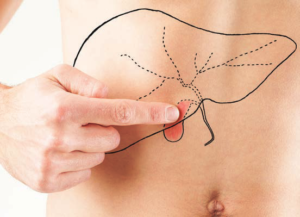 Researchers at Xining Haihu Hospital studied the effects of combining acupuncture with the prescription drug cefodizime in the treatment of chronic cholecystitis or inflammation of the gallbladder. What they found was the participants who received both drug therapy and acupuncture had better outcomes than those who only were taking the prescription medication. The study followed 100 patients that were divided into two groups. The control group received the prescription and the treatment group received the medication plus acupuncture. The participants were evaluated before and after the course of treatment. Those in the treatment group reported their symptoms decreased and this was visible on the blood tests that were performed. This research shows acupuncture is an effective addition to treatments in the alleviation of gallbladder inflammation.
Researchers at Xining Haihu Hospital studied the effects of combining acupuncture with the prescription drug cefodizime in the treatment of chronic cholecystitis or inflammation of the gallbladder. What they found was the participants who received both drug therapy and acupuncture had better outcomes than those who only were taking the prescription medication. The study followed 100 patients that were divided into two groups. The control group received the prescription and the treatment group received the medication plus acupuncture. The participants were evaluated before and after the course of treatment. Those in the treatment group reported their symptoms decreased and this was visible on the blood tests that were performed. This research shows acupuncture is an effective addition to treatments in the alleviation of gallbladder inflammation.
The gallbladder is an organ small in comparison to many other organs in the human body, measuring only four inches in length. It can be found under the liver in the upper right quadrant of the abdomen. The gallbladder stores bile. Bile is a combination of fat, fluids and cholesterol that helps break down fat from the food we eat. The bile is then secreted into the small intestine allowing fat-soluble vitamins to be more easily absorbed by the body. And even though the gallbladder has a very specific function, it is not vital for life, as the liver actually produces bile.
In Traditional Chinese Medicine, the gallbladder has several other functions too. The gallbladder governs decision making and planning. It affects dreams and it controls the sinews of the body. The gallbladder is responsible for passion, action and assertiveness.
Many people have problems with their gallbladders. This is usually caused by one of two main conditions, poor diet or excessive stress. A person who experiences severe chronic stress and couples that with poor eating habits, can easily become sick. Fast, greasy, rich or spicy foods and added stress associated with a very demanding job can all lead to inflammation in the gallbladder, as well as stagnation that can contribute to the formation of gallstones.
The emotions are less of a culprit when it comes to gallbladder problems, but they can definitely be involved. The gallbladder is very closely associated with the liver in Chinese Medicine and the emotion associated with these two systems is anger. When the gallbladder becomes impaired because of excess stress or poor dietary choices, then anger may start to be more prevalent.
Aside from eating a clean diet and working to eliminate stress, acupuncture can offer some help in dealing with gallbladder issues. Acupuncture can help decrease inflammation and increase motility in the digestive tract. Regular acupuncture treatments can also decrease stress and help a person deal with pent-up anger. Acupuncture can help a person relax and even sleep better, which allows the gallbladder to function properly.
If you or somebody you know is suffering from any of the aforementioned issues, why not consider acupuncture? It’s all natural, no side effects and you will most likely still be able to keep your gallbladder.
Liver Stagnation
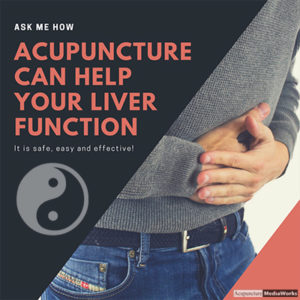 Who really considers their liver? Is it just a wedge-shaped spongy organ that somehow soaks up alcohol and squeezes out blood and digestive biochemicals? An imperfect champion of modern life, buffering us from the burden of late-night fries and whiskey, only to be guiltily appeased with salads and fresh juices the next morning? What is this being with whom we have such a tumultuous relationship? It is time to get to know the value of the liver according to Chinese medical theory.
Who really considers their liver? Is it just a wedge-shaped spongy organ that somehow soaks up alcohol and squeezes out blood and digestive biochemicals? An imperfect champion of modern life, buffering us from the burden of late-night fries and whiskey, only to be guiltily appeased with salads and fresh juices the next morning? What is this being with whom we have such a tumultuous relationship? It is time to get to know the value of the liver according to Chinese medical theory.
Chinese medicine has a long history of placing the functions of the body into analogical frameworks that help make light the complex ideas of functional relationships between organ systems.
Physiologically, the liver embodies the decisive aspect of a military general, in setting up the preconditions for the correct functioning of nearly every organ system. For example, the liver is related to blood pressure via its synthesis of albumin, the blood plasma protein that helps balance oncotic pressure, which ultimately influences systemic blood pressure. The liver stores and releases important vitamins, minerals and glucose; metabolizes hormones; synthesizes proteins; detoxifies various metabolites; and secretes biochemicals vital to digestion such as bile.
These functions allow the entire body to function correctly, and in a broad Chinese medicine sense this can be understood as governing the directional movement of Qi through the organ systems- to allow Qi to enter and exit the organs, stop and start metabolic processes, raise or lower pressure.
By allowing the correct movement of Qi through the body, the liver consequently governs the movement of blood, in a similar way to an army getting supplies and forces to the right people at the right time. The basic momentum of the blood is managed by the heart, but the usage of blood by any organ system is controlled by the liver.
So when you digest that heavy meal, blood gets shunted to the digestive organs; when you run, blood is made more available in the legs and lungs; when you sleep, blood retreats back to the liver for processing, allowing the liver to perform over 500 functions in the body.
According to Chinese medical theory, the liver Qi can become “bound up” by strong emotions, which physically inhibit its smooth functioning. Conversely, if the liver is physically injured or obstructed (say with fatty liver or even the blockage of the diaphragm), this causes a tendency toward angry outbursts, in the body’s attempt at removing obstruction with a forceful outpouring of energy.
Although this may sound like a stretch, consider the act of sighing. The liver sits just under the diaphragm physically. When the liver is obstructed by emotional tension, one begins to heave a heavy sigh to move the diaphragm and hence force the liver to move as well. It is no coincidence that a heavy sigh indicates a release of emotional tension. In this way we move our livers so our livers can “move” us, move our Qi and move our blood.
Liver Qi stagnation affects a large number of body processes, and it makes all of them less efficient. When the liver system is constantly challenged and bound up with stress, what follows are more severe imbalances of digestion, blood pressure, hormonal expression, blood sugar regulation and mood. This can cause muscle tension and pain, anxiety and/or depression, accumulation of fat, insomnia, menstrual cramps, low libido and more.
The correct movements of the body based on the “planning” action of the liver ultimately create a harmony of action of the body that nourishes a positive sense of self that allows stressful situations to be dealt with and not “held on to.” When one holds onto stress after the moment has passed, the smooth coordination of the planning process is interrupted; but as we all know, when one part of a carefully organized plan goes awry, it throws off the timing of the rest of the plan.
The modern condition of “decision fatigue” contributes directly to the binding up of activity of the liver system in a similar way to the “decision paralysis” that occurs when we have too many options or cannot decide. We go into fight or flight mode, release a bunch of stress hormones, and then stew in them because the organ system responsible for clearing out and metabolizing these stress hormones, the liver, is the one being most strongly impacted by our emotional response.
Another catch-22 of the liver system is that things like alcohol and fatty foods do tend to relax our minds and do technically ‘soothe’ the liver in small amounts. The prescription of medicinal wines are a perfect example of this; as is eating liver pâté to support liver health. However, these same substances in too large of quantities will injure the liver itself, disallowing their further use as a liver-supporting substance.
Ultimately, a little liver Qi stagnation is to be expected in modern life, and we all enjoy a bit of challenge to keep things interesting.
But, the higher the daily stress level, the more important it is to unwind this ‘bound’ Liver Qi. Allow the conscious or subconscious expression of emotion via playing sports, artistic pursuit, meditation, taking an extra long time to enjoy a healthy meal with friends, or in the most medically immediate way- seeing your acupuncturist for acupuncture, Chinese herbal medicine, cupping and massage.
Stir-fry For Your Health
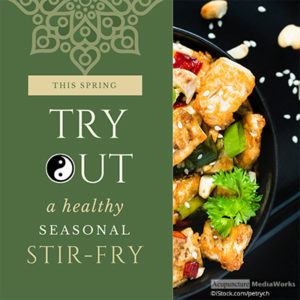 If you are looking to spice up your family meal this spring, why not try a healthy chicken stir fry. A meal that is colorful, warm, seasonal and easy to make.
If you are looking to spice up your family meal this spring, why not try a healthy chicken stir fry. A meal that is colorful, warm, seasonal and easy to make.
In Traditional Chinese medicine and Five Element theory, food is medicine. Not only is food healthy and nutritious biochemically, but it also has properties in temperature, taste, color and shape that benefit specific organs. Colors and taste benefit certain organs, for example, sour and the color green go to the liver. Pungent flavors such as garlic, ginger and onions benefit the lungs. Dark and salty foods like seaweed benefit the kidneys. The best thing to remember is to eat fruits and vegetables that are in season and try to add color to your food to encourage the healthy actions the organs have in the body. Warm and cooked vegetables are easier on the digestion than cold and raw food. A terrific item to add to the cooking schedule is a colorful and tasty stir-fry.
A stir-fry has a healthy variety of colors, vegetables, meat, spices and seasoning. Typically what goes into a stir-fry includes chicken, soy sauce, oyster sauce, rice vinegar, honey, garlic, ginger, onion and rice.
Preparation is simple and you can find countless recipes by conducting an Internet search. Typically, a recipe will look like this:
1 lb. chicken 1 tbs rice vinegar green onion to taste
1 tbsp cornstarch 1 tbs honey
2 tbsp soy sauce 3 cloves garlic
2 tbsp oyster sauce 1 tbsp ginger
Marinating the chicken overnight adds richer flavor, if you so choose. Combine cornstarch, soy and oyster sauce, rice vinegar, honey and garlic. Stir fry in chicken until brown, set aside. Add vegetables and cook until crisp. Stir in chicken, add onion, peanuts or other things to taste. Serve over rice.
For vegetarians, replacing tofu for chicken works as a delicious alternative. Play with some variety throughout the seasons. In the spring, opt for green foods to benefit the liver and gallbladder. In the summer, cool celery and basil might be soothing on a hot day. Autumn flavors might include leeks and white mushrooms to benefit the lungs. For winter, beef could be an alternative to chicken, as beef is warmer.
As you can see, a nice stir-fry with a variety of seasonal vegetables just might be a great and healthy way to exercise the notion that “food is medicine” to your diet.
Healthy Eating for Spring
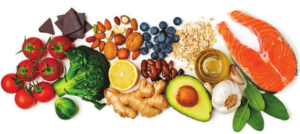 Spring is a time of renewal, regeneration, growth and energy. Plants and animals awaken from their slumber during the cold winter months, and vital nutrients stored in the roots of the plants and bodies of the animals come to the surface as life becomes more vibrant and fluid.
Spring is a time of renewal, regeneration, growth and energy. Plants and animals awaken from their slumber during the cold winter months, and vital nutrients stored in the roots of the plants and bodies of the animals come to the surface as life becomes more vibrant and fluid.
Human beings are no different. Humans stay indoors more during the winter months, and tend to pack on a little extra weight in the process. As the weather warms, humans become more gregarious and spend more time outside enjoying nature. This is just a natural process.
Therefore, it makes sense that what was observed by the ancient Chinese should still hold true today. Humans are supposed to take their cues from nature. As a species, humans should be more active during the warmer spring months. And to do this, we need proper nourishment. Qi (pronounced “chee”) is sometimes translated into energy. This Qi is the vital substance that keeps our bodies functioning until the day we die. To keep the Qi plentiful, we need to eat the proper foods at the proper times.
During the spring, we should be eating foods that have upward energies, such as green, sprouting vegetables. But we also need foods that will provide the extra nourishment for the increased amounts of activity that accompany the season of spring. This is where sweeter foods play a vital role. Foods such as fruits, nuts, yams, carrots and potatoes can provide the extra energy needed during the spring. But be careful not to overdo it. Too much sweet can overload the body and make it sluggish.
Sweets should be countered with pungent foods. Pungent foods aid in the movement of Qi upwards and outwards through the process of perspiration. Pungent flavored foods include scallions, onions, ginger, radishes, garlic, leeks and chives.
According to Traditional Chinese Medicine theory, spring is the season of the liver and the gallbladder. These organs regulate a smooth flow of energy throughout the whole body. However, they are prone to stagnation because we do not take proper care of ourselves. This can manifest as anger, irritability, depression, insomnia and even pain. Stagnation can occur when people eat too many poor-quality foods that may be full of chemicals.
Foods that help ward off stagnation include foods rich in chlorophyll, such as wheat grass, spirulina, chlorella, parsley, kale, Swiss chard and collard greens. All of these foods are abundant during the months of spring. It is also a good idea to have a glass of warm water with a slice of lemon first thing in the morning. This will help detoxify the liver and gallbladder to start the day off fresh. Lastly, foods that have a slightly bitter taste can help ward off heat in the liver. This includes foods like asparagus, quinoa, romaine lettuce and dandelion tea.
If you are curious about how to eat according to the seasons, contact a local licensed acupuncturist. They will be able to guide you along your healing journey through the use of Traditional Chinese Medicine and nutritional counseling.
